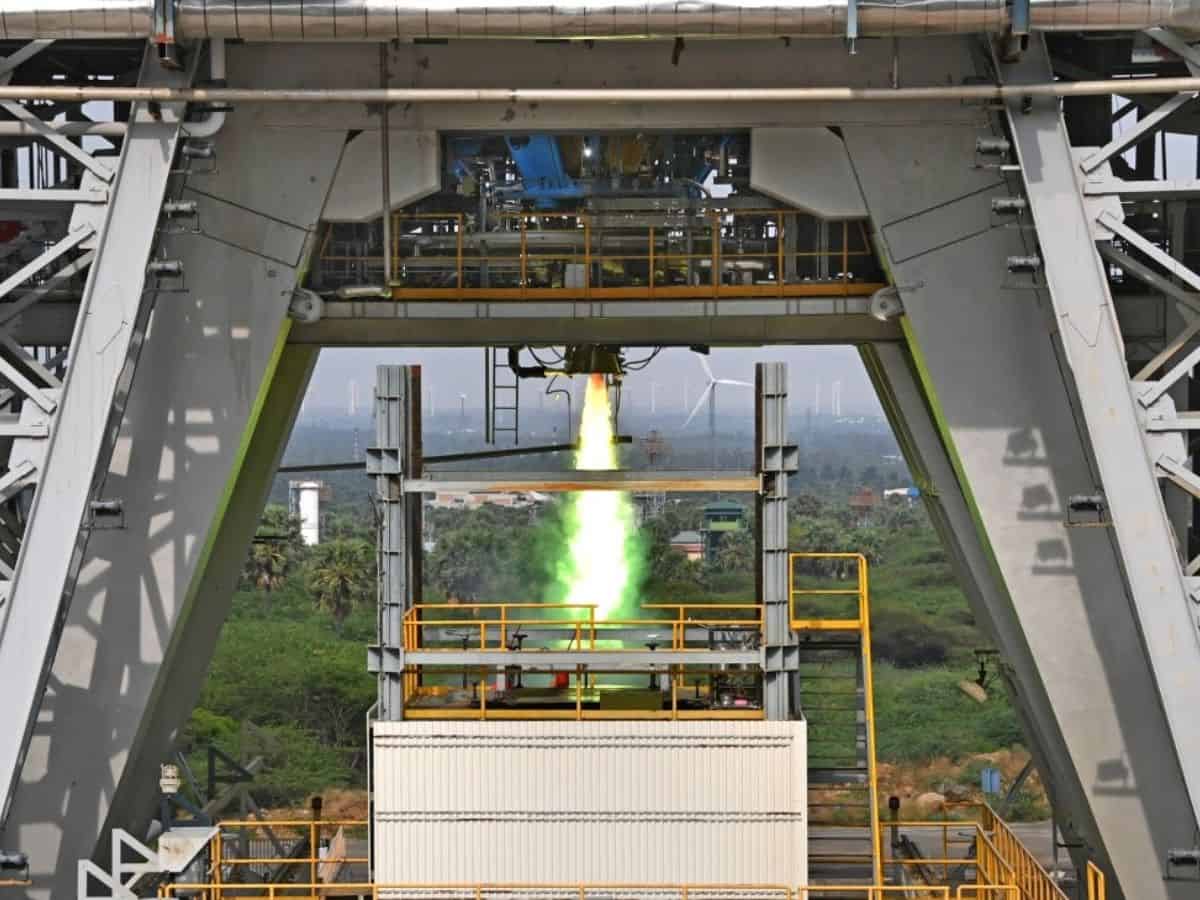
Chennai: The Indian space agency on Monday said it has successfully achieved the ignition of a semi-cryo preburner, a major milestone in the development of semi-cryogenic propulsion systems.
According to the Indian Space Research Organisation (ISRO), it is developing a 2,000 kN thrust semi-cryogenic engine working on a liquid oxygen (LOX)-kerosene propellant combination for enhancing the payload/carrying capability of LVM3 rocket and for future launch vehicles.
The Liquid Propulsion Systems Centre (LPSC) is the lead centre for the development of semi-cryogenic propulsion systems with the support of other launch vehicle centres of the ISRO.
The assembly and testing of the propulsion modules were done at the ISRO Propulsion Complex (IPRC), Mahendragiri.
As part of the engine development, a pre-burner ignition test article, which is a full complement of the engine power head system excluding the turbo-pumps, was realised.
The ISRO said the first ignition trial was conducted successfully on May 2, at the semi-cryo integrated engine test facility (SIET) at IPRC. The facility was dedicated to the nation recently by Prime Minister Narendra Modi.
Smooth and sustained ignition of the preburner is demonstrated which is vital for starting the semi-cryogenic engine, the ISRO said. Semi-cryogenic engine ignition is achieved using a start fuel ampule which uses a combination of triethyle alumnide and triethyle boron developed by the Vikram Sarabhai Space Centre(VSSC) and used for the first time in ISRO in the 2,000 kN semi-cryogenic engine.
The ignition process is one of the most critical parts in the development of liquid rocket engine systems. The Indian space agency said the successful ignition of the semi-cryo pre burner, will be followed by development tests on the engine powerhead test article and fully integrated engine.
The development of a semi-cryo stage with 120 tons of propellant loading is also under progress.



